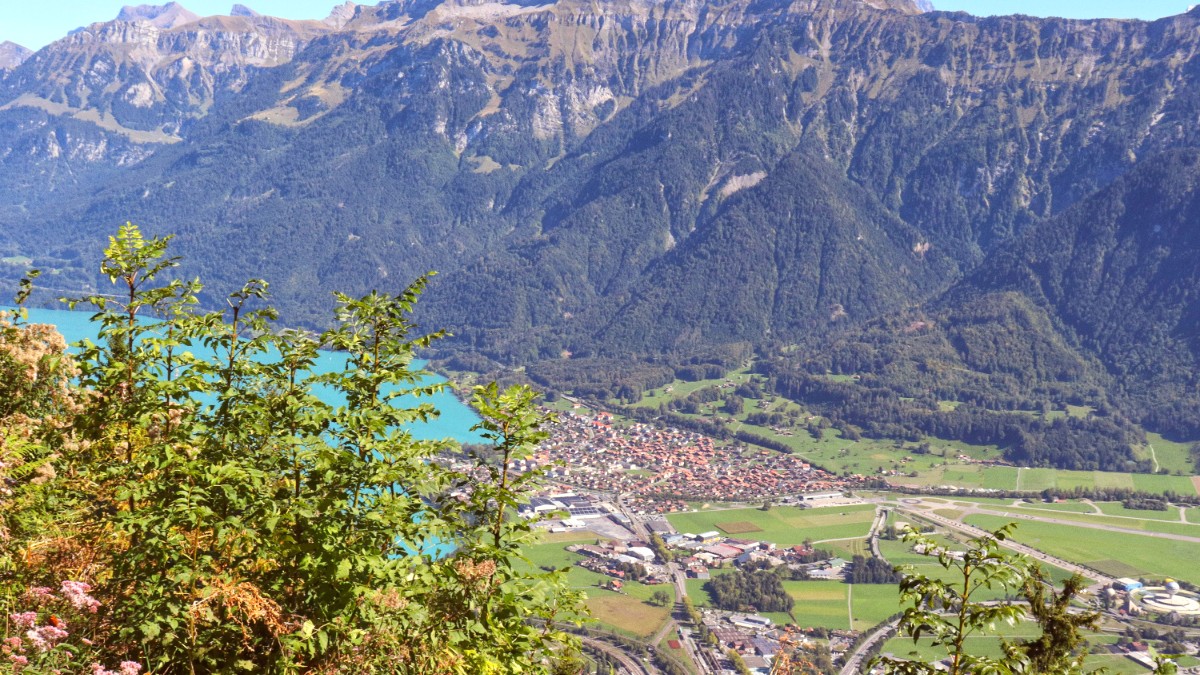
Central Switzerland And Berner Oberland, Switzerland
Historically, Swiss cuisine grew from the needs of mountain farmers and isolated communities.
Dishes typically used local ingredients like cheese and potatoes, crafted for nourishment and sustenance.
Interlaken's dining mainly focuses on traditional Swiss dishes common throughout the Bernese Oberland.
Due to international tourism, Interlaken also offers a wide range of international cuisines.
This diversity makes it simple to find something for everyone, whether authentic Swiss or international.
Melted cheese (Gruyère, Emmentaler) mixed with white wine, garlic, and kirsch.
Eaten by dipping small cubes of bread into the communal pot.
A large wheel of raclette cheese is heated, then scraped onto boiled potatoes.
Served with gherkins and pickled onions, a communal dining experience.
Sliced veal in a creamy mushroom sauce, a specialty widely enjoyed across Switzerland.
Typically served with Rösti (pan-fried grated potatoes).
Grilled sausages from stands, fresh bread, pastries, and sandwiches from bakeries for quick, affordable eats.
Rivella (an unique Swiss soft drink), rich hot chocolate, local Swiss beer, and regional Swiss wines like Pinot Noir and Chasselas.
Restaurant La Terrasse (Victoria Jungfrau Grand Hotel & Spa) for acclaimed gourmet dining.
Restaurant Ox (Hotel Du Nord) is popular for its quality meat dishes and comfortable atmosphere.
Supermarkets like Migros or Coop offer hot meals, sandwiches, salads, and groceries for self-catering.
The Panorama Restaurant at Harder Kulm offers stunning views over Interlaken and the lakes, especially beautiful at sunset.
Access by funicular. Book a table for dinner in advance.
Some restaurants, like Restaurant Spycher, offer evening shows featuring traditional Swiss music, yodeling, and alphorn playing.
Often accompanied by a traditional Swiss dinner.
Interlaken's natural setting provides endless scenic spots for self-prepared picnics.
Consider picnics along the lakeshores of Lake Thun or Lake Brienz.
Find serene spots on mountain trails for a quiet meal amidst nature.
A simple, affordable, and incredibly scenic dining experience.
Awareness of gluten-free and other allergens is growing in Switzerland. Many restaurants can accommodate requests.
Advisable to communicate your specific needs clearly to restaurant staff.
In alpine regions, find opportunities to visit cheese dairies.
Check local tourism calendars for seasonal markets or food-related events.
Some shops or hotels may show chocolate making demonstrations or workshops.
Look for small artisanal shops that might demonstrate wood carving (especially in Brienz) or other traditional crafts.
Dedicated public cooking classes are less common directly in Interlaken compared to larger Swiss cities like Lucerne or Zürich.
In the surrounding alpine regions, opportunities to visit alpine cheese dairies are present.
Some offer tours and tastings, showing how traditional Swiss cheeses are made.
The Emmental region, famous for its cheese, is also accessible for day trips.
A chance to sample authentic local products away from the main tourist crowds.
Migros or Coop "Take Away" sections offer pre-made sandwiches, salads, and hot meals for good value.
Try dishes that use fresh, local, and seasonal ingredients for an authentic taste of the region.
Venture into surrounding villages for a more local dining experience away from Interlaken's main tourist areas.
For a more affordable set lunch, many restaurants offer a "Tagesmenu" (daily menu) during lunchtime.